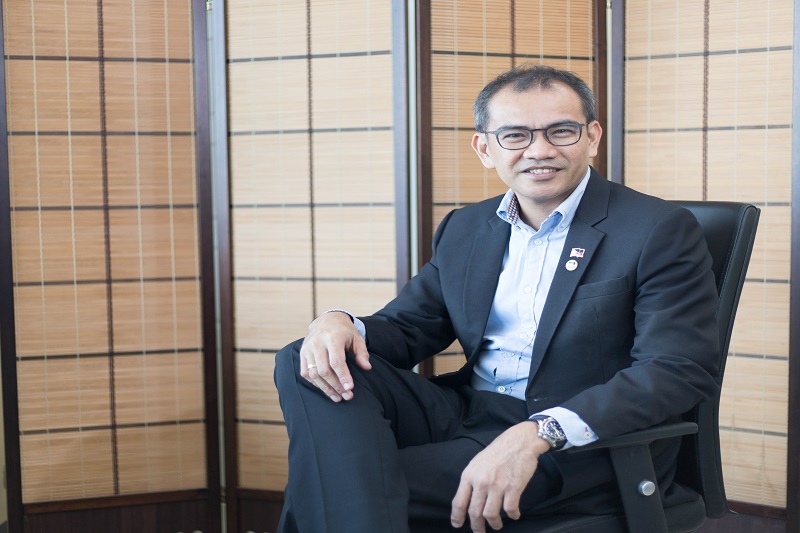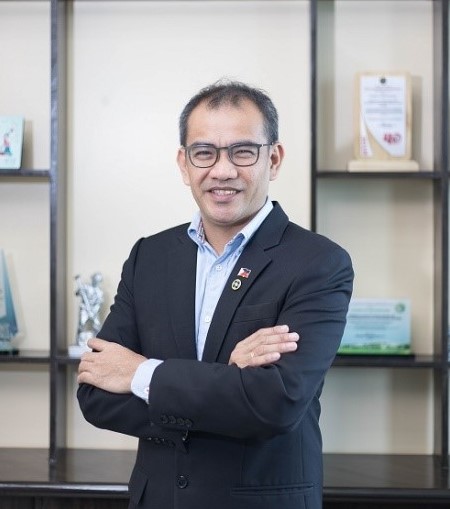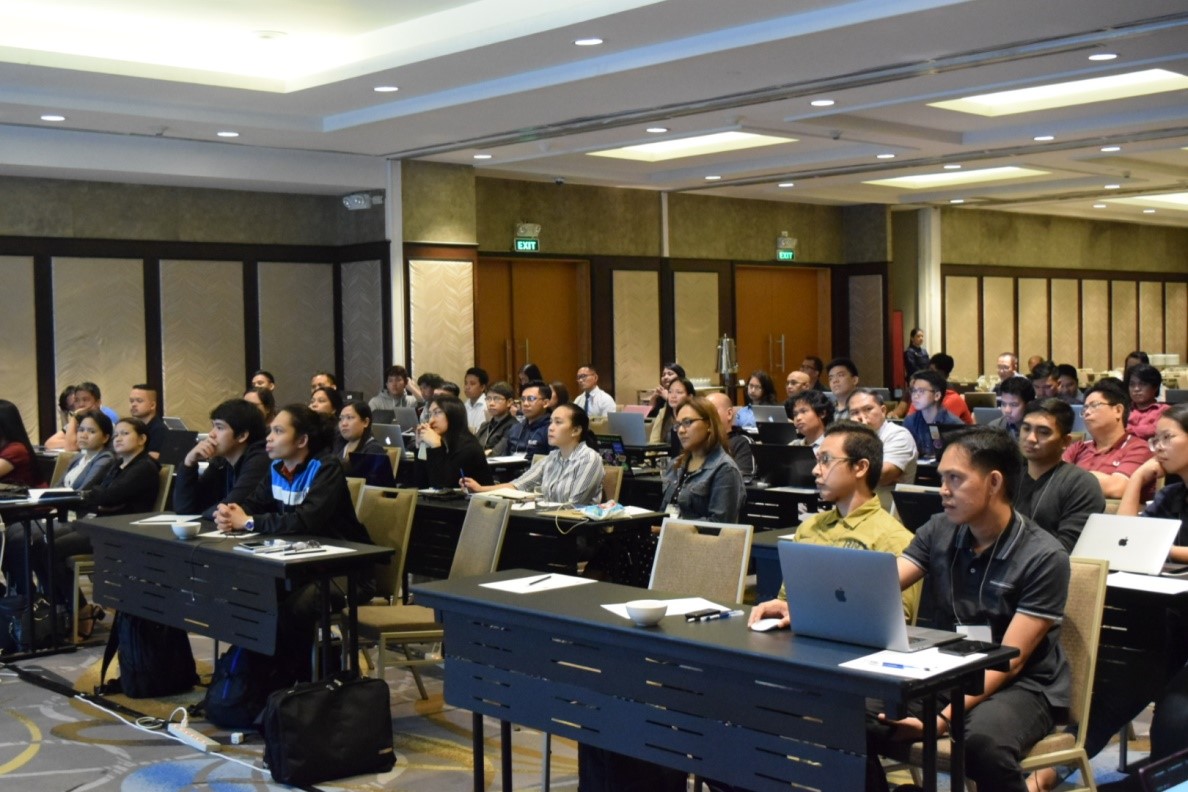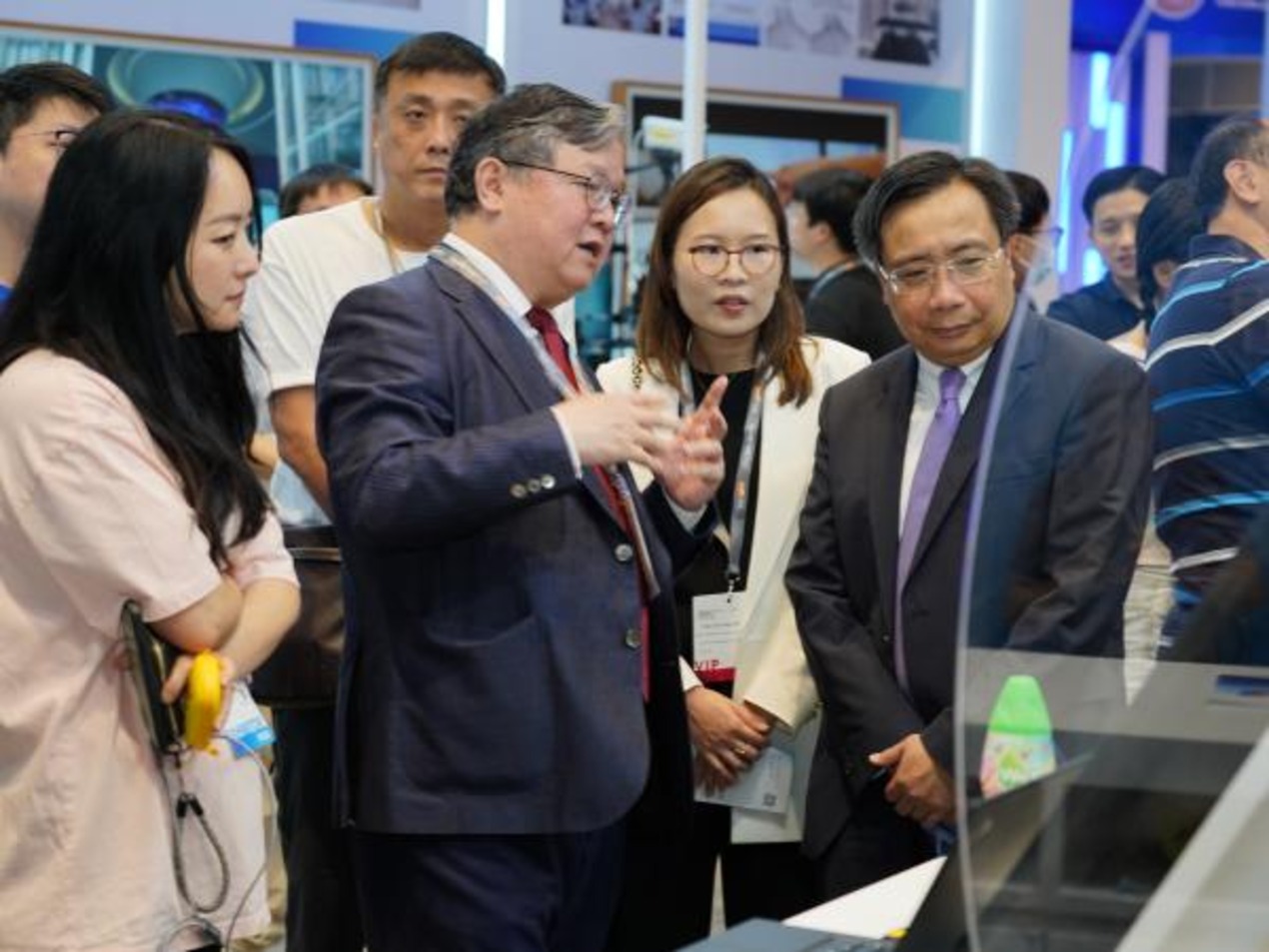
In its constant pursuit of helping citizens get a better and more relatable understanding of various tech-related policies, initiatives and services, OpenGov endeavours to speak directly with those directly responsible.
The manufacturing landscape is undergoing tremendous change. Called the Fourth Industrial Revolution (Industry 4.0), this era is one of massive innovation and evolution in the entire industry space.
Digitisation of manufacturing, the supply chain and distribution have transformed production centres into smart factories.
Industry 4.0 will take what was started in the third with the adoption of computers and automation but enhancing it with smart and autonomous systems fuelled by data and machine learning.
Although the Philippines may be slower in its adoption, the Government is ensuring it is not left behind by its ASEAN neighbours.
To learn more about how the nation is addressing these sensitive and complex aspects of its digital journey, OpenGov Asia had the privilege of speaking with Dr. Enrico C. Paringit, Executive Director, Department of Science and Technology – Philippine Council for Industry, Energy and Emerging Technology Research and Development (DOST-PCIEERD).
Background

As the Head of the country’s Innovation Council, he oversees the central agency in-charge of the conceptualisation, formulation and implementation of research and development (R&D) strategies, policies and plans for emerging technologies.
These technologies include Advanced Materials, Nanotechnology, Space Technology Applications, Photonics, and ICT and Electronics; all of which are all critical to the fourth industrial revolution.
Additionally, the Department is committed to pursue and make available science and technology (S&T) solutions and innovations to help create and sustain competitive industries, attain energy self-sufficiency, and ensure the efficient and effective use of emerging technologies for the inclusive growth and development of the country.
DOST-PCIEERD makes this possible by providing support for the following:
- A well-defined R&D thrust from innovative idea to technology development and knowledge generation to technology transfer and utilisation
- Active engagement of scientists, researchers and engineers in R&D activities
- Strengthened partnerships and significant collaborations with industry, academe and government agencies to complement resources and expertise
The Executive Director underscored three projects for 2020 that they have called proposals for.
The Call for Proposals is for specific priority areas identified in the Harmonized National R&D Agenda (HNRDA) 2017 – 2022. Guided by the principle “Science for the People”, DOST – PCIEERD directs R&D and S&T initiatives that will improve the innovation system to leverage economic progress.
These projects are:
- Integrated and Intelligent Sensors and Actuators (IISA) for Intelligent Factories Program
- Convergence of Philippine Technologies for Smarter City Development Program
- Good Governance through Data Science and Decision Support (GODDESS)
“If the start-ups that were produced, via the R&D activities we supported, lasted for that same period as well, producing jobs for Filipinos, then we did our job well.”
Integrated and Intelligent Sensors and Actuators (IISA) for Intelligent Factories Program
- Dr. Paringit highlighted the Industry Philippines 4.0 strategy around this project and how it will change the way manufacturing is done.
- In line with its thrust to propel the Philippines to achieve its Industry 4.0 aspirations, the Department called for research proposals to develop integrated sensor actuator systems and technologies for sensor and actuator with decentralised controls and connectivity, sensor/actuator networks, streaming data analytics for optimal and adaptive manufacturing.
- Complementing it, according to him, would entail providing adequate technology and upskilling in order for the Philippines’ industries, particularly the Small and Medium industries, to adopt.
- Supporting industries means finding ways to monitor what is happening on the assembly line as well as finding a way to adapt the processes according to the conditions defined by the monitoring system.
- Industry partnerships are required in this project proposal so that there is an identified firm or industry willing to work with the researchers.
- Moreover, these partners must be willing to introduce the proposed system of sensors and actuators in their assembly line.
- Implementing these solutions will make the industry or firm Industry 4.0 compliant.
Convergence of Philippine Technologies for Smarter City Development Program
- The Department of Science and Technology, to which PCIEERD is an attached agency, had literally and figuratively been everywhere, supporting so many research projects in the country, even those outside the metro.
- The Department realised that several of their past supported projects have applications in governance. One such project is an application on traffic simulation using software. Another is a traffic monitoring application that can apprehend violators with the use of CCTV cameras.
- The idea of creating an integrated system for all of these came to mind. Doing so will help decision-making for local government units (LGUs) to be smarter, elevating them to smart city status.
- Decisions include situations concerning traffic, hazards, disasters, availability of water, and health, among others.
- As head of a municipality, city or province, they should have access to a dashboard capable of telling them these stories in a day, trends in a month, and patterns in a year.
- With a dashboard such as this, they need not be in the streets physically to make decisions and create policies as there are ubiquitous sensors and CCTV cameras gathering the data for them.
- Technology will provide the data and information that they can use to act accordingly.
- The cities of Cauayan, Iloilo, and Butuan were chosen as the pilot city of implementation.
- With the city’s’ rapid economic and industrial growth, as well as the local government’s enthusiasm and support in ushering innovation, the concept and development of smarter cities in said sites have great potential, and eventually, project as a good model to other cities.
Good Governance through Data Science and Decision Support (GODDESS)

The Philippine government is transitioning to data-centric management and governance. GODDESS wants to support good governance through data and decision-support. The target is to train 300,000 people. The GODDESS project is heavily reliant on data analytics.
However, the country is facing an acute shortage of experts who can analyse and apply all the data being collected.
DOST-PCIEERD is calling on research proposals geared towards addressing the gap in the country’s workforce for data scientists and in enabling the government to adopt data-driven governance and evidence-based management.
The proposed project should be able to develop appropriate capabilities, systems and technologies that can be adapted and used by national government agencies and local government units.
It aims to address the country’s lack of capacity to respond to the emerging need to have an army of data managers, data analysts, data scientists, and data engineers, among others, to do the number-crunching, collect the data, and manage the data carefully in order for it to be useful.
There are 1,600 LGUs and around 200 government agencies. A program should be provided so that their data analysts, data collectors, and data engineers will be equipped.
The hope is that this will eventually be rolled out in the academe and that someday the universities will have their own data science programs.
There really is a strong need to upskill, reskill, and retool personnel into something that there is going to be a market for.
For now, the Department will be training faculty members so that they will get certificates and licenses to teach the program, which is also the Department’s way to help with providing them with the curriculum.
The training will be conducted via massive open online courses (MOOCs) as this is the quickest way to implement and deploy this initially.
Expected Outcomes
Dr. Paringit highlighted that the foremost expected outcome for all these projects is to contribute to the development of the economy. According to him, “I would like to believe that the technologies we support will not only sell but also create more jobs.”
He focused on the Smarter City Development program and how this can produce impacts on economic opportunity, empowerment and inclusion, environmental quality, healthy living and recreation, mobility, and safety and security.
The economic opportunity could mean increased employment opportunities, reductions in processing times for business permits, and improvements on the skill levels of the local labour force.
Empowerment and inclusion mean that residents are supported and given the opportunity to participate in the community.
Environment quality means having reduced greenhouse gases emissions, water treatment facilities, and habitat preservation.
Healthy living and recreation will provide increased access to recreational programming, availability of remote health services, and reduction in adverse health outcomes.
Mobility will include increased accessibility to public transportation, reduced first mile/last mile gaps, and reduction of congestion.
Safety and security mean reduced crime rates, increased safety for women and improved emergency response times.
Risks and Challenges
Openness of the data is a challenge for the projects. They do not own the data by themselves. The researchers collected or gathered the data during their experiments or from the field or from some other area such as other government agencies or industry partners.
This can be addressed by having a cohesive policy on how the data should be treated for everyone’s satisfaction. Dr. Paringit added that satisfaction is, of course, relative.
For each person or agency involved, it may mean a different thing or answers a different question such as “Were requirements met?”, “Are data privacies respected?”, and “Did it acknowledge ownership?”
They are aiming for optimisation. It can be quite expensive to gather data. This is why they want to guarantee that the data will be used optimally and will not violate privacy.
Measure of Success
The capability of the technology or the invention to stand on its own, without support from DOST-PCIEERD, is the Department’s measure of success. This includes the adoption of technology without their intervention or assistance.
DOST-PCIEERD does not count success in monetary terms. They look for breakthroughs in terms of the effectivity and prevalence of the technology.
Dr. Enrico C. Paringit ended the interview by saying:
“If few years down the line, perhaps around 5 years, we see the technologies being adopted, licenced, deployed in government institutions and industries, then we count that as our success.”















